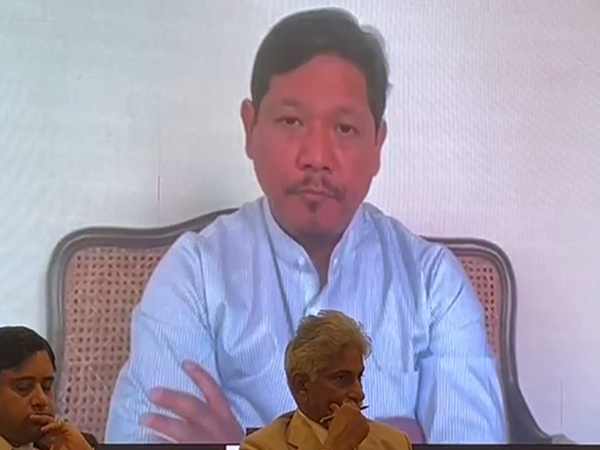Lemkin Institute, Bangladeshi diaspora call for formal recognition of 1971 Bangladesh Genocide by Pak Army
Mar 26, 2022

Washington [US], March 26 : As Bangladesh remembers the victims of 'Operation Searchlight', Human Rights Congress for Bangladesh Minorities (HRCBM) has urged the US and the international community to recognize the 1971 genocide of Bangladeshis by Pakistan and take immediate action against it.
In a virtual press conference on Thursday, the HRCBM called for immediate steps to bring to trial the 195 current and former members of the Pakistan Army, who were recorded as being responsible for the genocide.
The press conference was hosted by noted Journalist Adelle Nazarian and included a statement by Lemkin Institute's Elisa von Joeden-Forgey and Irene Massimino.
"We at the Lemkin Institute wish to extend our apologies that we cannot be there with you today. Despite our absence, we want to underscore our commitment to all Bangladeshis to work for the global recognition of the 1971 genocide. We believe that recognition of past genocide is critical to the cause of social justice, sustainable peace, and the prevention of future genocides," the statement read.
The Pakistan Army turned entire Bangladesh into a killing field with its indiscriminate killing, torture of innocent people and unprecedented scale of rapes for nine months.
That was the kickoff of one of the biggest genocides in the world, led by General Yahya Khan of Pakistan, causing the biggest ever humanitarian catastrophe after World War II. They killed 30 lakh people and violated two lakh women and children. Freedom fighters and researchers claim that still, many mass graves in the district and upazila levels remain unidentified.
Speakers of the conference, which included Priya Saha Executive Director HRCBM and Dhiman Deb Chowdhury President of HRCBM, emphasized that war crimes, if left unrecognized and unpunished, only lead to more aggression and suffering.
Priya Saha urged lawmakers at Capitol Hill to formally condemn the genocide perpetrated by the Pakistan Army and their collaborators in Bangladesh (former East Pakistan), from March 1971 to December 1971. She urged elected officials to condemn statements, actions and policies that deny or question that the massacres during 'Operation Searchlight' constituted a genocide.
Quoting a 2012 case study by Jessica Lee Rehman of California University, 2012, Priya termed rape in 1971 in Bangladesh as an "instance of pure terrorism".
She highlighted the work Australian doctor Geoffrey Davis who was brought to Dhaka by the United Nations to assist with late-term abortions of raped women in May 1971.
While Dhiman Deb Chowdhury requested the White House and the State Department to recognize the death of the nearly 3 million people, mostly Hindus, killed or executed by the Pakistan Army, along with individuals who endured pain and suffering in 1971, as well as foreign nationals from other countries of the region, who risked or lost their lives.
During the 1971 genocide in Bangladesh, the Pakistan military deliberately harmed hundreds of thousands of Bangladeshi citizens. Rights group says the horrors of 1971 are considered one of the worst mass atrocities in history.
The damage they inflicted can be described in the following numbers-- as many as three million people were believed to have been killed, up to 2,00,000 women were violated and over 10 million people were forced to cross the border to India to seek shelter.


















